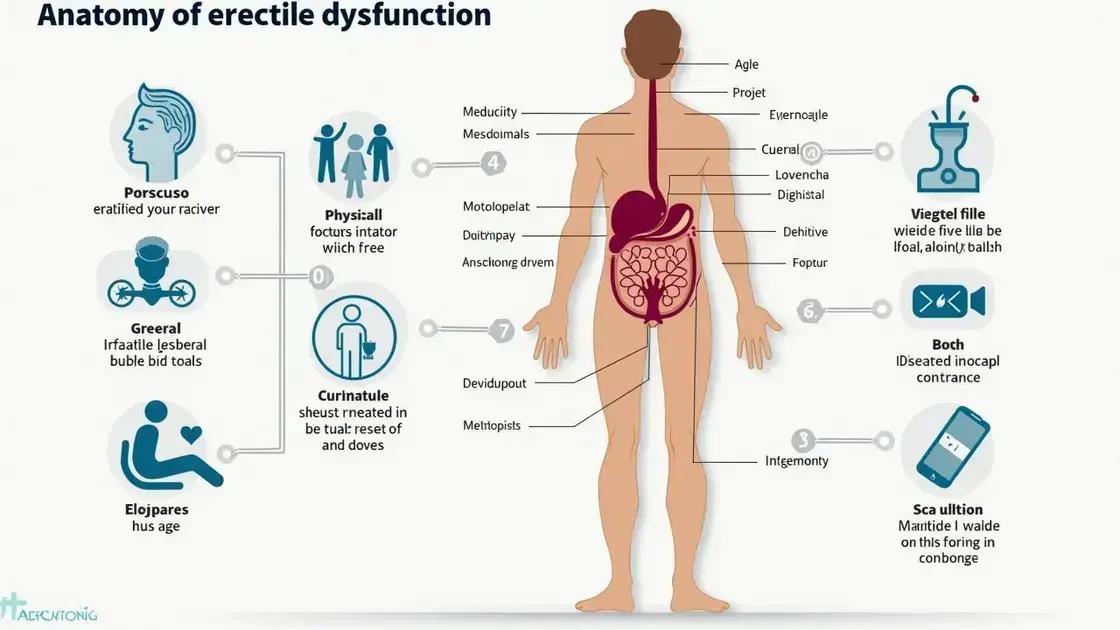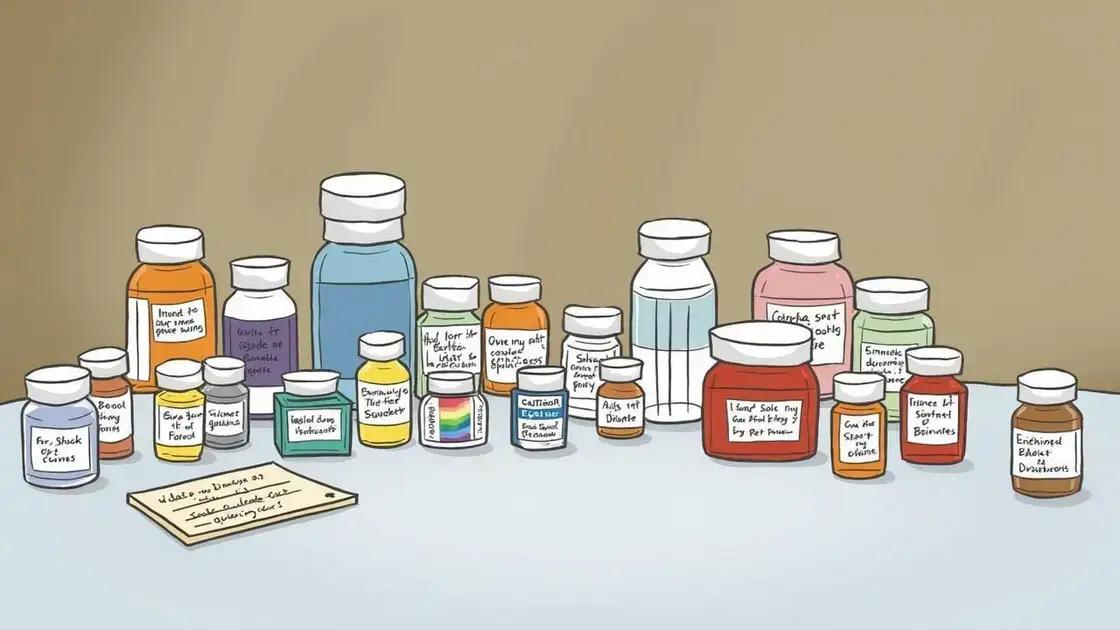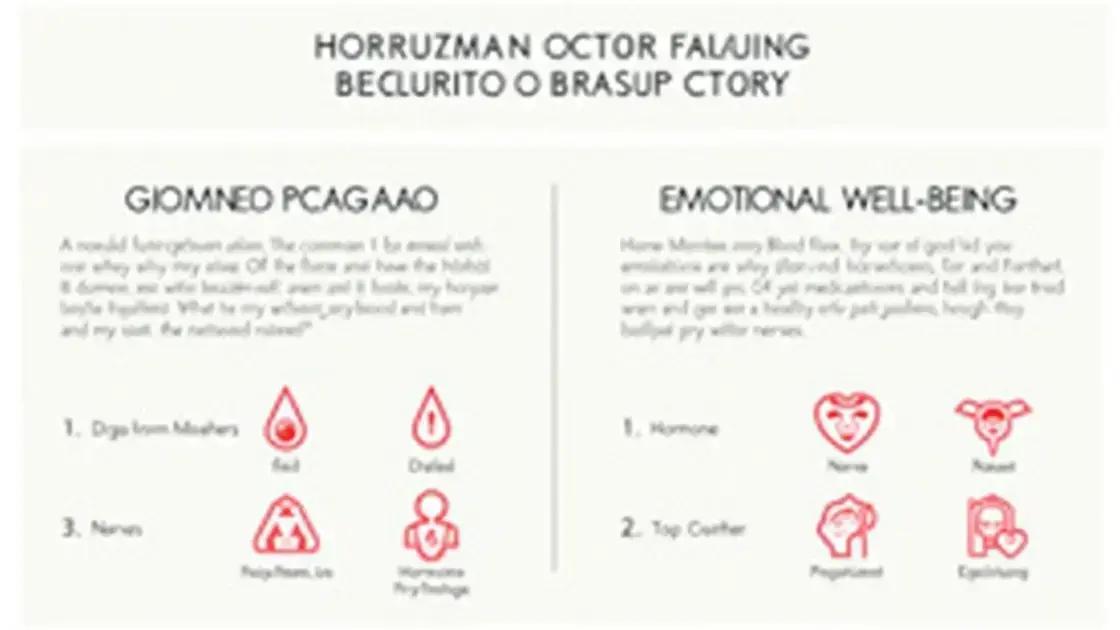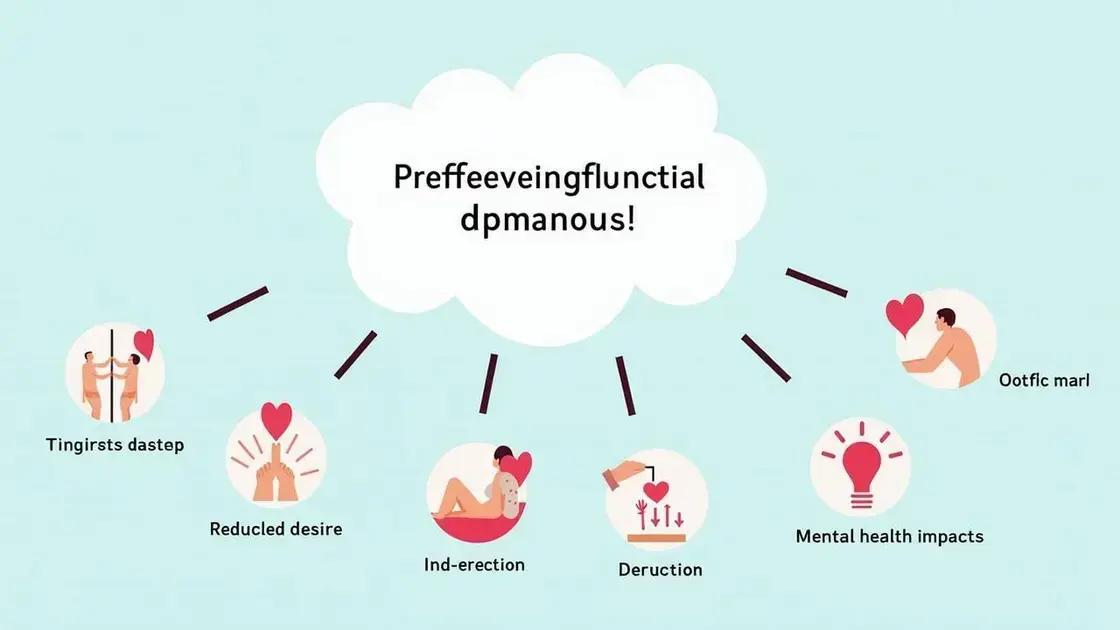Erectile dysfunction can arise from over-the-counter medications like antihistamines and decongestants due to their effects on blood flow and hormone levels. Recognizing symptoms and consulting a healthcare provider can lead to effective management and treatment options.
Erectile dysfunction is a condition that can impact many men, often leading to feelings of embarrassment and stress. But did you know that some over-the-counter medications might contribute to this issue? In this article, we’ll explore how certain non-prescription drugs can affect your sexual health and what symptoms you should be aware of. Understanding the connection between OTC medications and erectile dysfunction can help you take charge of your health and seek appropriate advice from healthcare professionals.
Understanding Erectile Dysfunction

Erectile dysfunction (ED) is the inability to get or keep an erection firm enough for sexual intercourse. It can happen occasionally or be a more constant issue. Understanding the causes and risk factors of erectile dysfunction is crucial for managing this condition.
Common Causes of Erectile Dysfunction
ED can be influenced by both physical and psychological factors. Physical causes include:
- Heart disease
- Diabetes
- High blood pressure
- Obesity
- Hormonal imbalances
Additionally, psychological factors such as stress, anxiety, and depression can also contribute to erectile dysfunction. Individuals experiencing relationship issues may find these feelings further complicate their ability to maintain an erection.
Risk Factors Associated with Erectile Dysfunction
Several risk factors can increase the likelihood of developing ED:
- Age: The likelihood of experiencing erectile dysfunction increases with age.
- Tobacco use: Smoking can restrict blood flow to the veins and arteries.
- Alcohol consumption: Heavy drinking can lead to temporary or chronic erectile dysfunction.
- Medications: Certain drugs can interfere with normal erectile function.
Recognizing these factors can help address and possibly prevent erectile dysfunction.
Importance of Seeking Help
ED can have a significant emotional impact on individuals and their partners. It is essential to understand that this issue is common and treatable. Seeking support from a healthcare provider can lead to finding the root cause, whether it’s related to lifestyle, medications, or underlying health conditions.
Common Over-the-Counter Medications

Over-the-counter (OTC) medications are commonly used to treat various conditions. However, some of these can potentially contribute to erectile dysfunction (ED). Here are some frequent categories of OTC medications that may affect sexual health.
1. Antihistamines
Commonly used to relieve allergies, antihistamines can cause dryness and reduced blood flow, leading to erectile issues. Examples include:
- Diphenhydramine (Benadryl)
- Loratadine (Claritin)
2. Decongestants
Decongestants help with nasal congestion but can constrict blood vessels, which may impede blood flow necessary for an erection. Common ones include:
- Pseudoephedrine (Sudafed)
- Phenylephrine
3. Pain Relievers
While most pain relievers are safe, long-term use of certain formulations, especially nonsteroidal anti-inflammatory drugs (NSAIDs), can have negative effects on sexual function. Examples are:
- Ibuprofen
- Aspirin
4. Muscle Relaxants
OTC muscle relaxants may lead to decreased sexual performance due to their sedative effects. A common muscle relaxant is:
- Cyclobenzaprine
5. Weight Loss Medications
Some weight loss products can affect hormone levels and lead to ED. Ingredients often found in these medications can disrupt normal erectile function. For example:
- Ephedra
- Guarana
Always read labels carefully and consult with a healthcare provider if you have concerns about how your medication may affect your sexual health.
How Medications Impact Sexual Health

Medications can significantly impact sexual health, affecting both the physical and emotional aspects of sexual function. Different types of drugs work in various ways, and understanding their effects can help users make informed choices.
Physical Effects of Medications
Certain drugs may hinder the body’s ability to achieve or maintain an erection. They can influence blood flow, hormone levels, and nerve function:
- Blood Flow: Medications that constrict blood vessels can limit the necessary blood flow to the penis, making it difficult to get an erection.
- Hormones: Some medications may disrupt hormone levels, particularly testosterone, which is crucial for sexual desire and function.
- Nerve Function: Medications affecting the nervous system may alter sexual arousal and performance by interfering with nerve signals.
Emotional and Psychological Effects
In addition to physical impacts, medications can also affect emotional well-being:
- Side Effects: Drowsiness, anxiety, and mood changes caused by certain medications can lower libido and reduce sexual interest.
- Expectations: Fear of side effects may lead to anxiety about performance, further complicating sexual encounters.
OTC vs. Prescription Medications
While over-the-counter medications tend to have fewer side effects than prescription drugs, they can still play a role in erectile dysfunction. Some individuals may be more susceptible to the impacts of even mild OTC drugs, leading to adverse sexual health outcomes. Always consider how any medication may affect sexual health.
Consulting a Healthcare Provider: If you suspect that medications may be impacting your sexual health, it is essential to talk with a healthcare provider. They can provide insights, and possible alternatives, or adjust your treatment plan accordingly.
Symptoms to Watch For

Recognizing the signs of erectile dysfunction (ED) is essential for men’s health. If you notice any of the following symptoms, it may indicate that your sexual health is being affected.
Difficulty Getting an Erection
This is the most common symptom of ED. If you often find it challenging to achieve an erection strong enough for sexual intercourse, this is a key indicator.
Difficulty Maintaining an Erection
Sometimes, men can get an erection but struggle to keep it during sexual activity. This issue can result in frustration and stress.
Reduced Sexual Desire
Experiencing a decreased interest in sex or a lack of sexual desire can also be a concerning symptom. This change may stem from emotional factors, medication side effects, or other health issues.
Changes in Orgasm
Symptoms might also include changes in orgasm intensity or feeling less satisfaction. These changes can occur with ongoing erectile difficulties.
Psychological Symptoms
Fear, anxiety, and feelings of inadequacy regarding sexual performance can also accompany ED symptoms. Mental health factors may significantly influence sexual function.
If you notice one or more of these symptoms, it’s important to seek advice from a healthcare professional. Early intervention can help address and manage these issues effectively.
Consulting Your Healthcare Provider

If you are experiencing symptoms of erectile dysfunction (ED), consulting your healthcare provider is crucial for understanding the underlying causes and receiving appropriate treatment. Here are some tips to make the most of your appointment.
Prepare for Your Visit
Before your appointment, it can be helpful to write down:
- All symptoms you are experiencing.
- Medications you are currently taking, including over-the-counter drugs.
- Your medical history, including any chronic conditions.
Be Honest About Your Symptoms
When discussing your situation, be open and honest. Explain the problems you are having and how long they have occurred. This information is helpful for your provider to diagnose the issue accurately.
Discuss Lifestyle Factors
Your healthcare provider may ask about lifestyle factors that could contribute to ED, such as:
- Diet and exercise habits.
- Tobacco and alcohol use.
- Stress levels and mental health status.
Ask Questions
Don’t hesitate to ask questions during your visit. Understanding your condition and treatment options is vital. Some questions may include:
- What might be causing my ED?
- Are any medications contributing to this?
- What treatment options do I have?
Follow-Up Appointments
After your initial visit, follow-up appointments may be necessary to monitor your progress. Keeping track of your symptoms and how treatments are working will help your provider adjust your plan as needed.
Understanding the Link Between OTC Medications and Erectile Dysfunction
Erectile dysfunction (ED) can be a sensitive issue, but understanding its causes is essential for effective management. Various over-the-counter (OTC) medications may contribute to ED, highlighting the importance of being aware of their potential side effects.
By recognizing symptoms and understanding how different medications impact sexual health, individuals can take proactive steps to address their concerns. Consulting with a healthcare provider is crucial for exploring treatment options and determining the best course of action.
In summary, being informed about the relationship between OTC medications and erectile dysfunction empowers individuals to seek help and find solutions, leading to better sexual health and overall well-being.
FAQ – Frequently Asked Questions about Erectile Dysfunction and OTC Medications
Can over-the-counter medications cause erectile dysfunction?
Yes, some over-the-counter medications, such as antihistamines and decongestants, can contribute to erectile dysfunction by affecting blood flow and hormone levels.
What symptoms should I watch for regarding erectile dysfunction?
Symptoms include difficulty getting or maintaining an erection, reduced sexual desire, and changes in orgasm intensity.
How can I prepare for a healthcare provider visit about ED?
Prepare by writing down your symptoms, a list of medications you take, and any relevant medical history to discuss with your provider.
Is erectile dysfunction only a physical issue?
No, erectile dysfunction can have both physical and psychological components, including stress, anxiety, and hormonal imbalances.
What should I do if I suspect my medication is causing ED?
Consult your healthcare provider to discuss your concerns. They can help evaluate your medications and suggest alternatives.
Are there effective treatments for erectile dysfunction?
Yes, there are various treatments available, including medication adjustments, therapy, and lifestyle changes that can improve erectile function.













